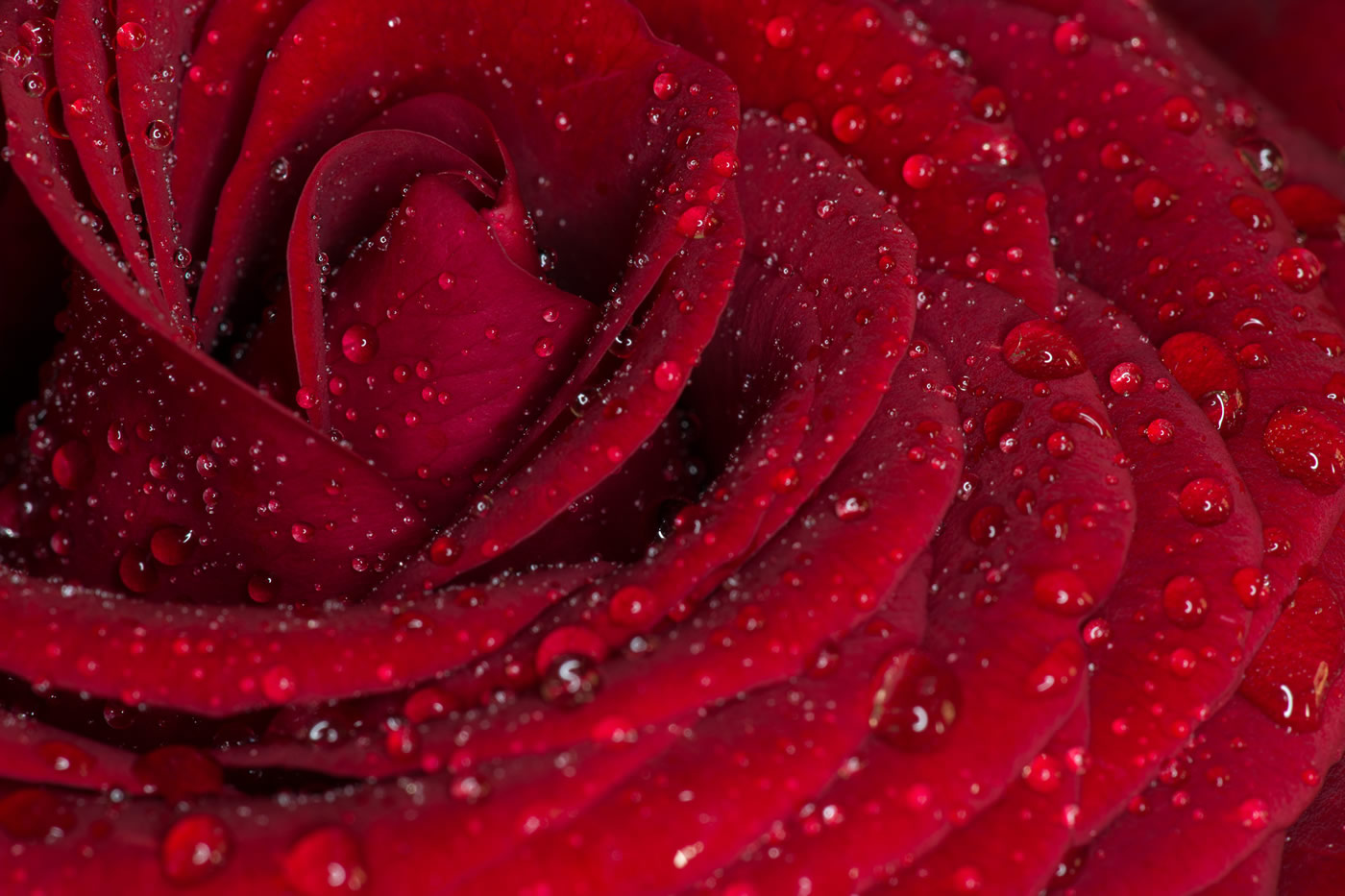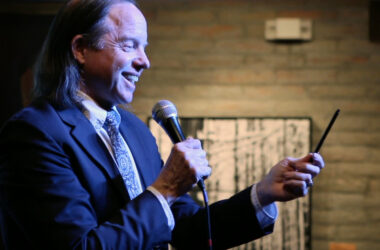Hi, welcome back to the Lam Rim (LAM RIM). Today, we’re going to do an episode called “Fine Points of my Paradise.” It means you know how to arrange your future paradise quite consciously, carefully, and successfully. We’re going to start. He’s still talking about the advantages of vows.
I remember many years ago I wanted to become a vegetarian but I was living in a small Mongolian monastery and there were ten or fifteen 80-year old monks. They all ate meat and I was the cook, so I had to cook and I had to make meat for them. I decided I didn’t want to eat meat but I didn’t know how to get out of it. One day I said I had a really bad stomach ache and I had to go to doctor. Everybody liked this doctor because he charged the monks five dollars—in America! He was this old, old country doctor. Anyway, I drove there in the car and I sat in the car, and I never went into his office. I waited for about forty-five minutes and then I drove back to the monastery. And I told all the monks—they said, “Are you okay?” I said, “Yeah, but the doctor said I have to give up meat. I can’t eat meat anymore.” And they said, “but can you cook it?” And I said, “yeah, yeah, I can cook it. If you need me to cook it I’ll cook it, but I can’t eat it anymore.” And they said, “Well, okay,” and then I started eating frozen macaroni for the rest of my life.
But there was a Mongolian geshe, a very, very high geshe who was blind. I was living in the next room and he called me in. He was very old and blind—high, high geshe. And he said, “You know giving up meat, that’s a good thing. That’s a very good thing.” “But,” he said, “taking a vow would be better.” We arranged a little ceremony. I took a little vow from him not to eat meat and it was something very beautiful. So that’s a little bit about what we’re going to talk about—the power of a vow and the difference between making a vow to do something and just deciding to do something. So here it says.. we’re going to go to the text.
[su_icon icon=”icon: link” color=”#ff1259″ size=”20″ shape_size=”12″ url=”https://youtu.be/vNfehMxQ4cM?t=2m46s” target=”blank”]Video[/su_icon]so tar gyi dompa ni khen lob gendun dang chepa le khe langpa yinpe (SO THAR GYI SDOM PA NI MKHAN SLOB DGE ‘DUN DANG BCAS PA LAS KHAS BLANGS PA YIN PAS) When you take these Pratimoksha (pratimokṣa) vows, either lifetime laymen’s vows, or even just keeping your ten good deeds, or if you want to go deeper, you can be a novice monk or nun, or an intermediate nun, or a full monk or nun. And it says here when you take those Vinaya vows, you take them from khen lob gendun (MKHAN SLOB DGE ‘DUN). khen (MKHAN) means Khenpo (MKHAN PO), which nowadays means “abbott.” But in the ancient Vinaya texts, as those of you who are following the Mixed Nuts classes know… and by the way, you’re always welcome to come to the Mixed Nuts classes. You should find out about them. They are extraordinary translation classes. I think the best in the world. All the great classics. All the different categories of the great classics at the same time.
So Khenpo there means the person who grants you your vows—your Vinaya vows. lob (SLOB) means the different lobpuns (SLOB DPON) or acharyas (ācārya), which means the assistants to the person who gives you your Vinaya vows. If you’re becoming a monk or a nun, there’s the vow giver and then there are several main guys who help with the ordination, and they’re called lobpun. And then gendun (DGE ‘DUN) means you have to have enough monks there to make a new monk, and there are certain requirements about a quorum—how many monks should be there. dang chepa le ke langpa (DANG BCAS PA LAS KHAS BLANGS PA) So when you take these Vinaya vows, you have taken them from these—I don’t know—five or six people at least, sometimes many more. dey lab ja dang galway dik tung shakpay tse (DE’I BSLAB BYA DANG ‘GAL BA’I SDIG LTUNG BSHAGS PA’I TSE’) And then when you break those commitments you made—and those could be breaking commitments that you made, sort of general commitments like “I think I won’t like to eat meat,” or tungwa (LTUNG BA) which means more formal commitments that you took.
But if you break them, shakpay tse-ang (BSHAGS PA’I TSE’ANG), when you clean yourself, shakpa (BSHAGS PA) means when you open your heart and you tell someone else about the mistake you made, which is a very important element of cleaning a karmic seed. When you break it, when you open your heart and admit what you did—shakpay tse-ang gendun gyi dun du shak gu (DGE ‘DUN GYI MDUN DU BSHAGS DGOS) you should try to do it in the presence of some of the people that you took the vows from. And that’s why living in a monastery is so powerful. Because when you get there you take certain vows from certain people and then you’re living around those people for the rest of your life. Oftentimes those people are with you for the rest of your life.
And so they are always available for you to go into their room and say, “Look, I made a mistake today. I broke my vows.” And I apologize to the person who gave me those vows. So that’s very powerful. gu kyi rang chik pur shakpe (DGOS KYI, RANG GCIG PUR BSHAGS PAS) Is it an option to just sit in your room and sort of make a little confession? “I broke my vow today. I did this mistake. I broke this vow and I’m very sorry and I’ll try to control myself in the future.” The text here, Pabongka Rinpoche says, “is that enough?” He says, “Well, it depends on what you did.” Meaning if you just broke some general rule of morality, then maybe that’s okay to just sit in your room and make a sincere confession. Out loud helps. Promise not to do it again. Do your four powers. You will be able to clean that negative seed. But …. he says kyang (KYANG), tungwa dak mi tubpe (LTUNG BA ‘DAG MI THUB PAS) If you took a specific vow from another person, and I think implied here is that they are still available, then you should go to them and you should tell them, “I broke my vow.” Otherwise, you won’t be able to clean it completely. Okay, so that’s a pretty strong statement.
[su_icon icon=”icon: link” color=”#ff1259″ size=”20″ shape_size=”12″ url=”https://youtu.be/vNfehMxQ4cM?t=7m36s” target=”blank”]Video[/su_icon]When you break a vow that you took from somebody then really you should go to that person and explain to them what you broke. Or a similar person. A similar person of seniority or integrity. You go and confess it to them. And he says that that is the only way you will be able to clean that seed completely. Now there is a tradition, like for example in your bodhisattva vows, to confess to a Buddha statue on your altar or something like that. And that’s okay. If you don’t have any choice. Like if you’re in a three-year retreat or something, and you’re not seeing anybody, then obviously that would be appropriate. And if you can’t get to somebody else to confess that would be appropriate. But we have this very powerful desire inside of us, I think I have it very strong, I want other people to like me. I want other people to think I’m a good person. It pains me if someone sees me doing something wrong. And so, I think like many of us, I try to hide it. It’s called chabpa (‘CHAB PA). I try to hide my mistakes. And there’s a joke that we often spend more effort to hide the things we did wrong than we do to fix it. Or not to do it. Or just stop doing it. We spend much more effort trying to hide the things we do.

So I just wanted to say here, I think it’s a good place to add that if you can, then tell somebody else. Anybody else, okay? Tell someone else. You know, there’s a requirement: they have to be a human being, they have to have ears, they have to understand your language, obviously. Tell somebody and then the bad seed is much, much less. We have a picture here. I found this picture of a lady who went to the store. She’s buying something special at the store. This is a kind of a weird box. I don’t know why she’s buying it, but she likes it. Certain items in an American store… let’s say it’s a chain store, there may be thirty stores, if it’s a strange item like this box then you have to take it back to the store where you bought it. If you don’t like it, you can’t take it to a branch store. You have to take it back to the store where you bought it, and that reminds me of this idea. If it’s possible then go back to the person that you took the vows from. If you break them, go back to them and tell them when you break them. And that says something about how you take vows.
[su_icon icon=”icon: link” color=”#ff1259″ size=”20″ shape_size=”12″ url=”https://youtu.be/vNfehMxQ4cM?t=10m49s” target=”blank”]Video[/su_icon]You can take vows—bodhisattva vows, tantric vows—you can take them from a famous lama or from some famous teacher who comes and is teaching a hundred people, or a thousand people, or ten thousand people. They’re offering vows. You can take vows from them and it feels like an honor. But there’s a tradition that it’s good to take your vows from someone who lives near you, if you can, from someone in the same community. Then when you break them you can go back to the store where you bought the vows and you can clean them more effectively because they’re going to watch you in the future. You know, my lama, I lived with him for almost thirty years, I really did try to go to him and confess. I would knock on his door. The first few times he listened to me very carefully. And he said, “Okay, don’t do that again.” Later, it got to be so common for him that I would open the door and say that I have to talk to you and he would say, “I know, I know. It’s clear, you know. I even know which one you broke, I can tell!” I’d say, “I’m sorry” and I always felt much better. I think in the end it worked for me that I got rid of my bad habits by being open with him. So I really encourage you to do it.
Now Pabongka Rinpoche starts talking about the small things. There’s this expression in American English, “It’s all in the details.” It’s all in the small things, you know, and it says here dey nang ne kyang (DE’I NANG NAS KYANG)—If you consider all the different Vinaya vows or commitments that you can take, there are some tiny, tiny… they almost don’t even count as vows; they’re just kind of strong suggestions at the end of the smallest vows. chab len (CHAB LEN) means, try to rinse your mouth after you take your meals so you don’t get bad breath and hurt people. And hlam phu (LHAM PHUD)… hlam (LHAM) means “shoes,” so take your shoes off when it is appropriate, like when you enter a temple, or when you’re going to sit down on a meditation mat, especially somebody else’s meditation mat. tsun ni chepa (TSUN MI BYED PA)—Suppose you didn’t do that, you broke those tiny suggestions. gu phu dung chen gyon gu jung (GOS PHU DUNG CAN GYON DGOS BYUNG)—or some small thing where you had to kind of fudge your Vinaya vows. So a monk is not supposed to wear clothes with sleeves on them. We’re supposed to always wear sleeveless tops, called a tungak (STOD ‘GAG). We’re supposed to always wear those. Now every monk I know, if it’s cold, if you’re in Mongolia and it’s snowing, they will put on a jacket. Technically a jacket is not allowed in the Vinaya. But the Vinaya was written for central India where it never snows. So these small things, small suggestions that we are supposed to keep if we want to be really careful.
So Rinpoche wants to talk about those and he says, de le hlakpa rung mi nupa per je ne (DE LAS LHAG PA BSRUNG MI NUS PA DPER BYAS NAS) or it could be something else similar to that. But if you find that you can’t keep those things—nang chung mi ja (MNANGS CHUNG MI BYA) Don’t take it lightly. Don’t blow it off. Okay, maybe you have to put a jacket on if you are a monk in Mongolia. Maybe you have to. But don’t blow it off. Don’t think it’s not important. Don’t think you shouldn’t follow that rule where you can and still keep yourself healthy, okay? So don’t blow off even these tiny suggestions. nang chung mi ja phem hlak sok le (PHAM LHAG SOGS LAS) You can take pampa shi (PHAM PA BZHI) hlak ma bcu gsum (LHAG MA BCU GSUM)… these are different levels of vows. phampa (PHAM PA) is the first level of vows. hlak ma (LHAG MA) is the second level of vows. phampa means, literally, “destroyed.” Your vow is destroyed if you commit it, like killing a human being. And then hlakma means you don’t lose all your vows, but you lose a lot. You still have a little bit left.
[su_icon icon=”icon: link” color=”#ff1259″ size=”20″ shape_size=”12″ url=”https://youtu.be/vNfehMxQ4cM?t=15m53s” target=”blank”]Video[/su_icon]le (LAS)—so these are the very serious monk’s vows. tramo gong mu de dak tenpay mik tu la nu tsab chewa yin (PHRA MO GONG SMOS DE DAG BSTAN PA’I MIG LTOS LA GNOD TSABS CHE BA YIN) This is an interesting concept. One point of view, one state of mind that a monk or nun especially, or someone who took bodhisattva vows, one thing we have to keep in mind is “how do we look to other people?” Not in an egotistical way. But we have to think, if you’re a spiritual person, then it is important, and it is useful to think how do you appear to other people. I live in America. Buddhists are very uncommon. We are not common. Some of my neighbors found out I’m a Buddhist, so now they are watching me. They are very traditional Christians and they are watching me because for them I am Buddhism. See what I mean? For my neighbours, I am Buddhism. So if I act in a nice way they will have respect for Buddha and that would be a good seed for them. And if I make small mistakes, you see because small mistakes are… what Pabongka Rinpoche is saying here, small mistakes give people impressions almost easier than big mistakes.
In my neighborhood, I think if they found out I had stolen things from the store as a kid, and I had a police record, I think they wouldn’t mind so much. Because many people in my community have these kind of small police records. But if I leave my garbage can out on the street for an extra day, they’ll say, “Buddhists are bad people, Buddhists are not good people. They leave their garbage can out too long.” I think what Pabongka Rinpoche is saying here is very interesting. That it’s the small things that give other people impressions of you and of the path you are practicing. If you say, “I’m a lam rim practitioner, I’m following the lam rim, I’m going to all the online lam rim events, I’m becoming a lam rim master,” which you can online. I guess, cool, because you get to see it over and over if you want to. Then you have to kind of watch how you behave with the small things. Okay? With the small things. And then Pabongka Rinpoche takes this discussion in a very interesting direction.
[su_icon icon=”icon: link” color=”#ff1259″ size=”20″ shape_size=”12″ url=”https://youtu.be/vNfehMxQ4cM?t=18m45s” target=”blank”]Video[/su_icon]
It’s kind of like DCI. Like a good DCI teaching. He takes this discussion in an interesting direction. He says, “Okay, let’s suppose you’re a monk and you don’t rinse your mouth out after you take your meal.” You you can see the picture here of this businessman who didn’t brush his teeth, and then he came to the office and he is reading this thing out loud and his breath smells really bad to the assistant. He’s not even aware of it. He’s not thinking about it. It’s a small thing. It’s not a big thing. But Pabongka Rinpoche says, pang tung jinlab sok kyang chi nu kyi che (SPANG LTUNG BYIN RLABS SOGS KYANG CI NUS KYIS BYED) But you should go through—there are steps for a monk to clean away even small bad seeds. pang tun (SPANG LTUNG) means these are not very serious vows, these are not heavy vows. They are serious but they are not heavy. There are ways to remove the bad seed which is jinlab (BYIN RLABS), which is a blessing. These are ways to reduce the bad seeds from breaking smaller vows. chi nu kyi che (CI NUS KYIS BYED) You should try really hard to purify even those small seeds when you make a mistake. If you go to work without brushing your teeth and you are killing your assistant with your bad breath and you realize it, then you should do something to remove that tiny bad seed.
Why? jikten di na gung tsik dang ja sok sopa la-ang (‘JIG RTEN ‘DI NA GUNG TSIGS DANG JA SOGS BZO PA LA’ANG) Even in the normal world—and that’s a common scriptural sentence opener. Even in the normal world. Forget a Buddhist monastery. Forget a lam rim retreat. Even in the normal world—jikten di na (‘JIG RTEN ‘DI NA)—in this world. gung tsik (GUNG TSIGS) means fixing something for “lunch,” cooking something for lunch. And ja (JA) means making yourself a coffee. But it’s “tea,” which is Tibetan coffee. Which makes me thirsty. sopa la-ang (BZO PA LA’ANG) You want to make a good tea? And by the way, like coffee is the foundation of American culture, salt tea is the foundation of Tibetan culture. And the first thing that happened to me when I got to the monastery was, well first of all, the new guys have to be the cooks. So I was assigned to be a cook the first day. I was the cook for eight years. It was good for me. Good for my pride. So they’re going to teach me how to make a nice Tibetan tea. To make a Tibetan tea it’s not an easy thing to do. It’s got to have salt, butter, soda, nutmeg, milk, cream, Chinese black tea, and then you have to use a ja dong (JA DONG). You have to use a… what do you call those things? Butter churn! You have to use a churn. It takes a long time and it’s a hard thing to do. It’s a hard thing to do right, a good Tibetan tea. And my lama drank about twenty-five cups a day. So I was in the kitchen a lot. But when you make that tea, you’ve got to have all the ingredients. And again, the taste of a good Tibetan tea is in the details. Did you crush the salt carefully? Himalaya rock salt. Did you crush it carefully? Did you get the best kind of spices that you could? Did you use a very good block of black tea? Did you not overcook it? But did you let it steep long enough? Even when you’re cooking a lunch or you are making a tea for your teacher, for example, the difference between a normal cup of tea and an extraordinary cup of tea is in the small details. It’s not some big grand thing.
[su_icon icon=”icon: link” color=”#ff1259″ size=”20″ shape_size=”12″ url=”https://youtu.be/vNfehMxQ4cM?t=23m31s” target=”blank”]Video[/su_icon]
Why is Pabongka Rinpoche talking about that? He’s saying what makes the difference between a normal spiritual person and a really special spiritual person is the small things, it’s the small details. So he says don’t blow off these little vows. If you’ve made a commitment to open doors for people, then for the rest of your life open doors for people. If you made a commitment to serve a beverage to someone in the room first, then you’re going to do it for the rest of your life, and don’t blow off these small commitments. What we see here is a Christmas tree decoration. I like to call it “finishing touches on a perfect world.” So don’t forget, what we’re doing… especially after you learn the pen and after you learn the four steps—what a lam rim person is trying to do, we’re trying to design our future Buddha paradise. It’s not like an expensive penthouse in Manhattan or Paris. It’s not like that. Don’t think of it like that. It’s a perfect world. It’s the mandala (maṇḍala) that you offer before class. You are trying to build, piece by piece, a perfect world. That’s what the steps on the path is all about. Each step is another seed to plant a perfect world, perfect galaxy, a perfect universe. That’s what we’re doing and that comes from the small things.
That comes from taking care about what kind of salt you buy, making sure the butter is fresh for the butter tea. Making sure you really work hard to find the best water for the tea, which is very, very important. Making sure the presentation of the tea is very elegant. It’s in the small things that you build a Buddha paradise. That’s why I was showing a Christmas tree. In my family when I was growing up, it was a big thing. We would get a license from the government to go out in the forest and cut a Christmas tree. We would carry it home, it was a lot of work, and then we would set it up. All the kids would put the decorations on the tree. I still do it. Veronica loves these Christmas trees. And then there’s the last bulb you put on the tree. Somehow you look at the tree, you’ve been working on it for two, three hours, and then you say it needs one more bulb and you put the last bulb on the tree. Then it’s like, “Wow! Now it’s perfect!”
So don’t forget that brushing your teeth may be the final bulb on the Christmas tree of your Buddha paradise. Don’t blow off even small, small things. If something will bring comfort or happiness to another living being, then do it. Because your Buddha paradise is made from the small touches. Pabongka Rinpoche is saying don’t blow off these little vows, don’t blow off these little commitments. Don’t blow off the littlest commitments you take with your bodhisattva vows or your tantric vows. Never blow them off because those are the finishing touches on your Buddha paradise. You won’t have a complete Buddha paradise unless you really watch the small things. And the small things are what other people remember, not the big things. So if your goal is to make other people happy, really, most often, it’s the small things that make people happy, not the grand gestures. It’s the small things that make people happy.
[su_icon icon=”icon: link” color=”#ff1259″ size=”20″ shape_size=”12″ url=”https://youtu.be/vNfehMxQ4cM?t=27m53s” target=”blank”]Video[/su_icon]rang re chi mar dun du nyer ja’i ten drubpa la-ang (RANG RES PHYI MAR DON DU GNYER BYA’I RTEN SGRUB PA LA’ANG) Now, he doesn’t get into Buddha paradises, He says, “You also need the small touches to get a human body next time.” I’ve got this image of Pabangka Rinpoche saying, “Look, watch out for the small things. You don’t brush your teeth one day and maybe you don’t have an ear in your next life.” Maybe you get a body without an ear or maybe your nose is going to be twisted like a U or something. You’ve got to be careful because it’s the little things that you do now that create every detail of your future body. I think the human body has about thirty-thousand working parts. I believe it’s about thirty-thousand working parts. And it’s a miracle that those parts are working together, like a fine Swiss watch like my friend makes. He’s Mr. Hess… Walter. It’s the small things that make it work, and each one of those thirty-thousand pieces in the human body that you have was created by many small karmas. So if you’re thinking about continuing this spiritual journey, which is always a multi-life task—if you’re in the lam rim course now and if you think ten years is a lot that we’ve been studying lam rim, this is at least a five-hundred year project. I’m impressed by the government of China. They always have a five-year plan. They always have a ten-year plan. My government, to be honest, we don’t even have a five-day plan or a ten-day plan.
But if you’re a lam rim citizen, you have at least a five-hundred year plan, maybe a thousand-year plan. Which means you’re going to have to have at least seven to ten bodies. So we have to be careful to design our body. So he’s not talking Buddha paradise right now. He says you have to watch the small things because they’re going to help you come back in a body which has ears and a nose, where there’s Dharma and things like that. ten druppa la-ang tsultrim sungwa dang (RTEN SGRUB PA LA’ANG TSUL KHRIMS BSRUNG BA DANG) jinpa tangwa sok na re michokpe (SBYIN PA BTANG BA SOGS SNA RES MI CHOG PAS) To get that perfect body, you’re going to have to have morality, but you’re also going to have to do the bodhisattva perfections. What are they?
[su_icon icon=”icon: link” color=”#ff1259″ size=”20″ shape_size=”12″ url=”https://youtu.be/vNfehMxQ4cM?t=30m45s” target=”blank”]Video[/su_icon](1) Giving. (2) Morality. Being a good person. Being nice to other people. (3) Not getting angry. (4) Having fun when you film Lam Rim [being happy doing good things]. (5) Meditation, and (6) wisdom. He says, “Look, you guys have your sights on those high bodhisattva things, but the foundation is always being nice to other people.” You can be very generous, you can be practicing the six perfections, you can have this bodhisattva intention, you can be practicing with emptiness understanding, but if you don’t have morality, that’s empty. It’s all empty. It’s all fake. It doesn’t have a strong foundation to it. If you’re not being nice to other people, it doesn’t matter how great a scholar you are, or a meditator, it doesn’t matter. It’s hollow. tsultim tsanway ngu ne, jin tong sok kyang gang drub che gu (TSUL KHRIMS GTZANG BA’I NGOS NAS, SBYIN GTONG SOGS KYANG GANG ‘GRUB BYED DGOS) So do your high bodhisattva works, do your high tantric things, but make sure the foundation is being nice to other people in the grocery store.
ga shik gi so tar gyi dulway chupa ni, wangpo menpa nam kyi chu yul yin gyi, wang nun yang rab nam kyi, dendray gu dok che migupar (‘GA’ ZHIG GIS, SO THAR GYI ‘DUL BA’I SPYOD PA NI, DBANG PO DMAN PA RNAMS KYI SPYOD YUL YIN GYI, DBANG RNON YANG RAB RNAMS KYIS, DE ‘DRA’I GU DOG BYED MI DGOS PAR) So now he addresses a common misperception. And he says, “Look, you see people around who say, ‘Oh, those Vinaya vows, all those, who can count them?” Monk’s vows, nun’s vows, combined it’s over five hundred, six hundred vows. It’s too much. That kind of very practical guidance, like what to eat, what to wear, how to clean your room, this is for lower lam rim practitioners. That’s really for lower people. That’s for people who are kind of clueless. This heavy Vinaya stuff, that’s really made for people who are not very sophisticated. This is probably made for yak herders or cow herders in India. Clean your room and put your water bowls and all this kind of stuff.” He says: wang nun yang rab nam kyi (DBANG RNON YANG RAB RNAMS KYIS) “Us higher practitioners, us more sophisticated practitioners who have a higher normal IQ and a higher spiritual IQ,” gu dok che (GU DOG BYED) “This is just a hassle”. An unnecessary hassle. “The Vinaya was created for simple people and I’m not a simple person.” “I’m a sophisticated modern person.” “I understand the Vinaya was useful for village people in India, but look, I’m living in Manhattan and we are sophisticated.” “Paris. Beijing. Shenzhen, Guadalajara … we are sophisticated.” “We don’t need this, we need the higher stuff.”
[su_icon icon=”icon: link” color=”#ff1259″ size=”20″ shape_size=”12″ url=”https://youtu.be/vNfehMxQ4cM?t=34m14s” target=”blank”]Video[/su_icon]gu dok che “that’s just a pain in the butt, that stuff.” migupar sang ngak kyi nyur lam (MI DGOS PAR GSANG SNGAGS KYI MYUR LAM) “Ah, now tantra, the way of the secret word, this is the real fast track. I’m a fast track person.” duk sum lam khyer (DUG GSUM LAM ‘KHYER) In fact, as I understand it… by the way this is a wrong view. I’m just repeating a wrong view. “As I understand it,” duk sum lam khyer—you can use the three poisons of the mind in tantra as a rocket ship to higher goals. You can use anger, you can use sex, you can even use your misunderstandings as a rocket ship. That’s the special quality of tantra. Don’t take this statement out of context from the video. I’m just translating. He says you meet this che-pe chok che (BYED PAS CHOG CES) You see people saying, “That’s enough. I’m this elegant… I’m this sophisticated diamond way practitioner. I’m not like those village people who need to be told how to clean their room and how to put out their water bowls and stuff like that.” “I’m on a fast-track.” labpa la chir yang mi tsiway (BSLAB PA LA CIR YANG MI BRTZI BA’I).
Then you see them, and they get worse and worse. They say, “Oh, alcohol is a path in the diamond way, I will take a drop.” Then the next day, “I will take a sip.” Then the next week they need a bottle, and I’ve seen people like this. I’ve really seen people like this and they have ruined their life by misusing diamond way ideas, misusing diamond way substances. I have seen it. And they just ruined their life. Okay, they just ruined their life. chupar che mu (SPYOD PAR BYED MOD) He says you see people like that. There are people like that. But sang ngakpa yin yang (GSANG SNGAGS PA YIN YANG), but I’ll tell you something. You can be a diamond way practitioner, so tar gyi dom den yin na (SO THAR GYI SDOM LDAN YIN NA) but you must keep your Vinaya vows. You must keep your ten good deeds, because that’s the engine that drives tantra. Well-kept Vinaya vows, well-kept bodhisattva vows, are the engine that drives tantra, that drives the diamond way. Okay, so don’t blow it off. Don’t say, “I’m a beyond that,” and especially don’t make the mistake of using substances—alcohol, meat, sex—and thinking that this is going to… you’re so high. You can just do these things. You can use anger. I have a picture here of a guy, he’s like, “I’m Yamantaka! When I’m at work I use my tantric practice. I yell at people and I visualize myself as a blue creature with twelve arms and I’m yelling at everybody, but it’s really just a tantric practice. I have this high tantric practice going on.” And he says, “Forget that!” Pabongka Rinpoche says, “Forget that!” You see people acting like that and they are deluded. Why?
[su_icon icon=”icon: link” color=”#ff1259″ size=”20″ shape_size=”12″ url=”https://youtu.be/vNfehMxQ4cM?t=37m41s” target=”blank”]Video[/su_icon]sang ngakpa yin yang so tar gyi dom den yin na tsul shin sung gu te, pungsang gi gyu le (GSANG SNGAGS PA YIN YANG SO THAR GYI SDOM LDAN YIN NA TSUL BZHIN BSRUNG DGOS TE, DPUNG BZANG GI RGYUD LAS) Then he quotes a famous tantra, which is called pung sang gi shupa shejaway gyu (DPUNG BZANG GIS ZHUS PA ZHES BYA BA’I RGYUD) It’s a tantra. It’s a famous tantra called, “The Questions of Subahu.” The person’s name was Subahu, and here’s the quotation. Who’s talking? It’s a tantra. Who taught it? Lord Buddha in his highest form. Lord Buddha in this high, high form. He says, gyelwa nge sung so so tarpa yi(,RGYAL BA NGAS GSUNGS SO SO THAR PA YI,) tsultrim namdak dulwa ma lu le, (,TSUL KHRIMS RNAM DAG ‘DUL BA MA LUS LAS,) ngakpa kyimpe tak dang choga pang, (,SNGAGS PA KHYIM PAS RTAGS DANG CHO GA SPANG,) hlakma nam ni nyam su langwa ja (,LHAG MA RNAMS NI NYAMS SU BLANG BAR BYA,) It is a very powerful statement. He says, “Look, I am the Buddha.” So I’m giving you the Buddha’s… the straight dope, the straight word from the Buddha. “I’m giving you the straight word from the Buddhas.”
so so tarpa yi (SO SO THAR PA YI) “I taught those Vinaya vows. Those basic, basic foundational vows. I taught them. If you happen to be a tantrika, you are following the diamond way, and you happen to not be a monk or nun, the only Vinaya things I allow you not to keep are the robes and the monk’s rituals.” Got it? “If you are a layperson and you take tantric vows, the only Vinaya things I allow you not to follow is monk’s robes and the monk’s special rituals.” They have different kinds of water pots and stuff like that. But the rest you have to keep. In other words, except for your clothing, “I expect you to be a monk or a nun. You want to be a tantrika? Then I expect you to be a monk or a nun on the inside. On the outside you can still wear a suit and tie. But on the inside if you want to practice tantra you have to keep these basic vows, you have to follow these basic guidelines that I have laid out for you in the Vinaya.”
Alright, we ran over a little bit. I apologize. Sometimes Pabongka Rinpoche just has a little bit more to say. And I think it’s really beautiful this idea that if we watch the small things that will make other people happy we are putting the finishing touches on our Buddha paradise.
Okay, cool. See you next time. Thank you.








